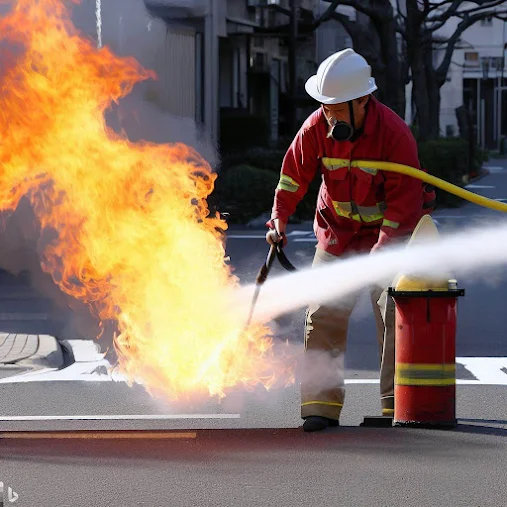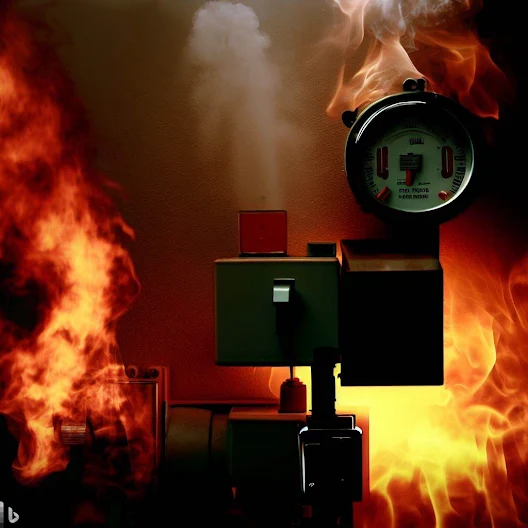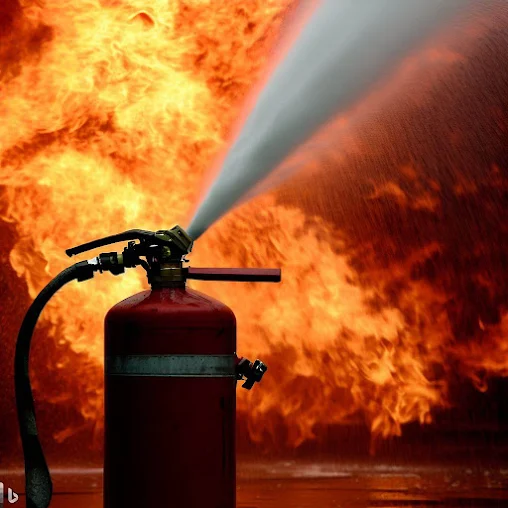As a homeowner, it is crucial to prioritize your family's safety and protect your property from any hazards that can cause damage or harm. One of the most significant risks that you need to be aware of is fire. Fires can occur at any time and can quickly become uncontrollable, leading to devastating consequences.
Therefore, it is essential to understand the importance of fire and safety in home security and take appropriate measures to prevent fires from happening or minimize their impact. In this article, we will discuss the importance of fire and safety in home security and provide tips on how to safeguard your loved ones and property from potential dangers.
Fire and Safety in Home Security: What Does It Mean?
Before delving into the importance of fire and safety in home security, let's first understand what it means. Fire and safety in home security refer to the measures taken to prevent fires from starting or spreading and the measures taken to protect individuals and property from harm caused by fire.
Fire and safety in home security encompasses a broad range of strategies, including fire prevention, fire detection, fire suppression, and evacuation planning. These strategies aim to minimize the risk of fire and reduce the potential damage caused by a fire.
The Importance of Fire and Safety in Home Security
The importance of fire and safety in home security cannot be overstated. Here are some reasons why:
1. Protecting Your Loved Ones
The safety of your loved ones should be your top priority. Fires can cause severe injuries, permanent disabilities, or even death. In many cases, people are not aware of a fire until it is too late to escape. Fire and safety in home security measures can minimize the risk of injury or death by detecting fires early and providing a means of escape.
2. Protecting Your Property
Fires can cause significant damage to your property, resulting in expensive repairs or even total loss. Fire and safety in home security measures can help prevent fires from starting or spreading and minimize the damage caused by a fire.
3. Compliance with Laws and Regulations
Most countries have laws and regulations that require homeowners to have fire and safety measures in place. These measures aim to protect individuals and property from the devastating consequences of fires. Failure to comply with these laws can result in fines or legal consequences.
Fire Prevention Measures
Preventing fires from starting in the first place is the best way to protect your loved ones and property. Here are some fire prevention measures that you can take:
1. Regular Maintenance of Electrical and Heating Systems
Faulty electrical and heating systems are one of the leading causes of house fires. Regular maintenance of these systems can help prevent fires from starting. Ensure that you hire a qualified professional to perform maintenance.
2. Proper Storage and Disposal of Flammable Materials
Flammable materials such as gasoline, propane, and cleaning agents can ignite easily, causing fires. Proper storage and disposal of these materials are crucial in preventing fires from starting.
3. Smoke Detectors
Smoke detectors can detect fires early and provide a warning, giving you time to escape. Ensure that you install smoke detectors in every room of your house, and test them regularly to ensure they are working correctly.
4. Fire Extinguishers
Fire extinguishers can help extinguish small fires before they become uncontrollable. Ensure that you have a fire extinguisher in every room of your house and that you know how to use them.
Fire Detection Measures
Early detection of fires is crucial in preventing them from spreading and causing significant damage. Here are some fire detection measures that you can take:
1. Smoke Detectors
As mentioned earlier, smoke detectors can detect fires early and provide a warning. Ensure that you install smoke detectors in every room of your house, including hallways and staircases. Place them at least 10 feet away from cooking appliances to prevent false alarms.
2. Carbon Monoxide Detectors
Carbon monoxide is a toxic gas that can be produced by faulty heating systems, gas stoves, or vehicles left running in an attached garage. Carbon monoxide detectors can detect the presence of this gas and provide a warning.
3. Smart Home Security Systems
Smart home security systems can include fire and smoke detectors as well as carbon monoxide detectors. These systems can provide alerts to your phone or other devices, giving you the ability to act quickly in case of an emergency.
Read also Secure Your Home with Access Control Systems: The Ultimate Guide
Fire Suppression Measures
Fire suppression measures aim to extinguish or control fires. Here are some fire suppression measures that you can take:
1. Fire Extinguishers
As mentioned earlier, fire extinguishers can help extinguish small fires before they become uncontrollable. Ensure that you have the correct type of fire extinguisher for the type of fire that may occur, and that you know how to use it.
2. Sprinkler Systems
Sprinkler systems can detect and extinguish fires quickly, minimizing the damage caused by a fire. These systems are particularly useful in large buildings or properties with high fire risks.
3. Fire Blankets
Fire blankets can be used to smother small fires or to protect individuals from flames. Ensure that you have a fire blanket in your kitchen and that you know how to use it.
Evacuation Planning
In case of a fire, it is essential to have a plan in place to evacuate your family and property safely. Here are some tips for creating an evacuation plan:
1. Identify Escape Routes
Identify at least two escape routes for each room in your house. Ensure that these routes are clear of obstacles and that everyone in your family knows how to use them.
2. Practice Fire Drills
Regularly practicing fire drills can help ensure that everyone in your family knows what to do in case of a fire. Make sure that everyone knows how to escape and where to meet outside.
3. Establish Meeting Points
Establish meeting points outside your house where everyone can gather after evacuating. This will help you ensure that everyone is accounted for and safe.
FAQs
Why is fire and safety in home security important?
Fire and safety in home security are important because they protect your loved ones and property from the devastating consequences of fires.
What are some fire prevention measures that I can take?
You can take several fire prevention measures, including regular maintenance of electrical and heating systems, proper storage and disposal of flammable materials, smoke detectors, and fire extinguishers.
How can I detect fires early?
You can detect fires early by installing smoke detectors and carbon monoxide detectors in your house, as well as smart home security systems.
What fire suppression measures can I take?
You can take fire suppression measures, such as having fire extinguishers, sprinkler systems, and fire blankets.
How can I create an evacuation plan?
You can create an evacuation plan by identifying escape routes, practicing fire drills, and establishing meeting points outside your house.
Are there laws and regulations that require homeowners to have fire and safety measures in place?
Yes, most countries have laws and regulations that require homeowners to have fire and safety measures in place.
Conclusion
Fire and safety in home security are critical to protecting your loved ones and property from the devastating consequences of fires. Fire prevention, detection, suppression, and evacuation planning are all essential measures that you should take to minimize the risk of fire and reduce its impact. By following the tips provided in this article and taking action, you can create a safe and secure environment for you and your family.
Remember to install smoke detectors and carbon monoxide detectors, as well as smart home security systems that can alert you to any potential fire hazards. Keep fire extinguishers and fire blankets on hand, and ensure that everyone in your family knows how to use them.
Additionally, establish escape routes and practice fire drills regularly to ensure that everyone knows what to do in case of an emergency. Finally, remember to comply with laws and regulations that require homeowners to have fire and safety measures in place.
In summary, fire and safety in home security should never be taken lightly. The consequences of a fire can be devastating, so it's important to take the necessary measures to minimize the risk of fire and reduce its impact. By implementing the tips and measures provided in this article, you can create a safe and secure home for you and your loved ones.





Comments
Post a Comment